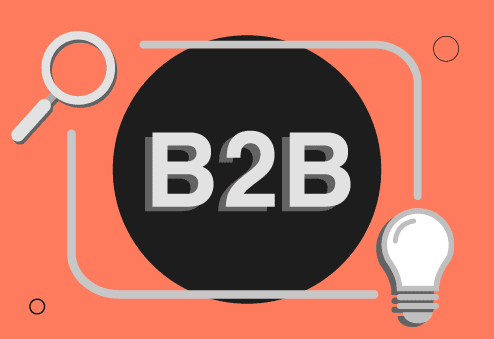Event marketing has changed. It’s not enough to host a polished event in a big city and expect it to turn heads. What really counts now is how well you understand the place you’re in—and the people you’re inviting.
Local context isn’t a nice-to-have anymore. It’s the core of your strategy.
In a global market, the events that stick are the ones that feel local and personal. The brands doing this well aren’t the loudest — they’re the ones that take the time to speak the local language, in every sense of the word.
Let’s take a look at why that matters — and how you can use it to run better events.
From One-Size-Fits-All to Hyper-Local Precision
For years, global brands treated event marketing like a touring production: same keynote, same stage design, same content — just repeated in different time zones. The goal was consistency. The result was often flat.
But audiences have changed. Expectations are higher. A panel discussion that feels dynamic and informal in San Francisco may come across as unstructured in Tokyo. A campaign launch in Berlin might fall short if it doesn’t align with the city’s creative subcultures.
Localisation isn’t about translation — it’s about adaptation. Brands now need to shape experiences around the cultural codes, professional norms, and unspoken expectations of each audience. And that means marketers must dig deeper than ever before.
Why Local Context Builds Real Engagement
When an event actually reflects the values, habits, and tone of the people in the room, it stops feeling like a corporate show and starts to feel real. That’s when people pay attention.
Tuning into the local context can make all the difference. It helps build:
- Trust: People connect more easily with brands that show they understand and respect. The local way of doing things builds a sense of familiarity, increasing trust.
- Relevance: When topics and formats speak to what’s actually happening on the ground, the event feels worth people’s time.
- Buzz: Events that tap into local conversations are the ones people talk about — whether it’s in the press or just over coffee the next day.
This isn’t about adding a few local touches. It’s about putting local insight at the centre of your strategy.
Data-Driven Localisation
In the past, localisation often relied on anecdotal knowledge or guesswork. Now, thanks to advanced analytics, event marketers can get laser-precise. Social listening, search trends, and behavioral data can inform decisions like:
- Which topics are trending in specific regions?
- What content formats perform best (workshops vs. keynotes)?
- When are peak engagement times in different cities?
By pairing data insights with local intelligence, brands can shape events that predict what audiences want — not just react to it.
The Role of Local Partnerships
People who live in a city know it better than anyone else. That’s why working with local partners matters.
Local vendors, speakers, and creatives don’t just make your event feel more real, they help you avoid getting things wrong. Additionally, leveraging tools like online accounting software can streamline budgeting and financial management across different event locations, ensuring consistency and efficiency. They know the rules, the right words to use, and which venues actually make sense.
That’s where platforms like Eventflare help. They’ve got a local team in most major (and some smaller!) cities across the globe who know the city like the back of their hands, from venue booking to vendor recommendations, Eventflare’s local team will help you plan your event.
The Importance of Context in Localisation
Many brands assume that ‘localising’ an event just means swapping out food options or adding city-specific references. But true contextualisation runs deeper.
It influences:
- Agenda structure: Should you lead with networking or content?
- Pacing: Some cultures value brevity, others welcome depth.
- Formality: Dress codes, tone of voice, and even how Q&As are conducted vary widely.
- Communication styles: Direct vs. indirect, humorous vs. serious—understanding this affects both content and delivery.
In short: context dictates experience. And if you’re not accounting for it, you’re designing for a generic audience that no longer exists.
Should Localisation Differ For B2B and B2C Events?
Your localisation strategy should look different, depending on your event type:
- B2B Events often demand a more formal, industry-aligned tone. Cultural norms around professionalism, hierarchy, and business etiquette matter enormously.
- B2C Events may allow for more experimentation but still need cultural fluency to feel authentic.
In both cases, success hinges on the same principle: relevance is relative.
Build Once, Adapt Often
One of the most efficient approaches to localising your events is to build modular experiences with a flexible core and customisable elements. Create a framework for your event (content tracks, brand messaging, visual identity), but design it in a way that allows for:
- Local speakers and hosts
- Region-specific case studies
- Custom cultural cues and experiences
- Adapted formats based on audience behaviour
It’s important to think of your event as a template, not a blueprint.
Related reading: When localising an event, it’s always best to hire a professional event translation company but just in case you need some last-minute help, here are the best Google Translate alternatives for accurate translations.
Amplifying Events With Localised Content Marketing
The strategy doesn’t stop at the event itself. Promoting it effectively means using local SEO, media, and language as well. Localised landing pages, region-specific paid ads, and event recaps in the native language make a huge difference in reach. This also improves post-event lead nurturing by ensuring content relevance.
A well-localised event, supported by a strong digital footprint, drives long-term ROI — not just a one-day buzz. This is especially powerful when paired with smart backlink strategies that boost domain authority and search visibility in key markets.
Localisation is Strategic, Not Cosmetic
In the past, localisation was treated as a finishing touch or something to consider after an event was designed. Now, it’s baked into the core strategy from day one.
Smart event marketers are asking:
- What’s the local challenge we’re helping solve?
- How does this city’s culture affect how people connect?
- What’s the tone that feels natural here?
These aren’t afterthoughts. They’re foundational decisions.
Conclusion: Think Global, Plan Local
The next wave of event marketing will belong to brands that don’t just travel well but land well. The ones who understand that every city is its own stage, and every audience deserves a show written for them.
Whether you’re hosting a high-stakes product launch or a small team retreat, local context gives you credibility, connection, and staying power. Get to know the people. Learn the pace. Respect the norms. Let local insight guide global ambition.
Because in the end, the most successful events aren’t just seen, they’re felt.




